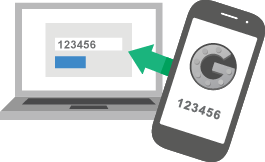2-step verification drastically reduces the chances of someone breaking into a user’s account. Why? Because criminals would have to not only get the user’s password and username, they’d have to get a hold of their phone as well.
Companies like Google, Dropbox and Paypal have all recently started allowing users to add an extra layer of protection to their accounts by having them authenticate in two steps. In addition to a username and password, users enter a code sent via SMS or a mobile app. This is based on a white paper of the Internet Engineering Task Force (IETF) TOTP: Time-Based One-Time Password.
Social hacking, phishing and brute force attacks of stolen passwords have shown that passwords alone are no longer secure enough. Remember the recent leak of 400,000 passwords by LinkedIn. Since many people use their e-mail as a username and the same password on multiple sites, once hackers have the password from one site they can use it to break into other sites. If the hackers get into an e-mail account, they can reset passwords on any site. Just ask Mat of Wired Magazine.
As an enterprise survey tool, with many banks, telecoms, governments and FMCGs as customers, we need to insure the highest level of security possible. That’s why we launched 2-step verification for our users in 2013. This made us the first survey tool to offer this level of security. We were also the first European company to offer it.
We encourage all users to activate this free security feature immediately.

Geef een antwoord